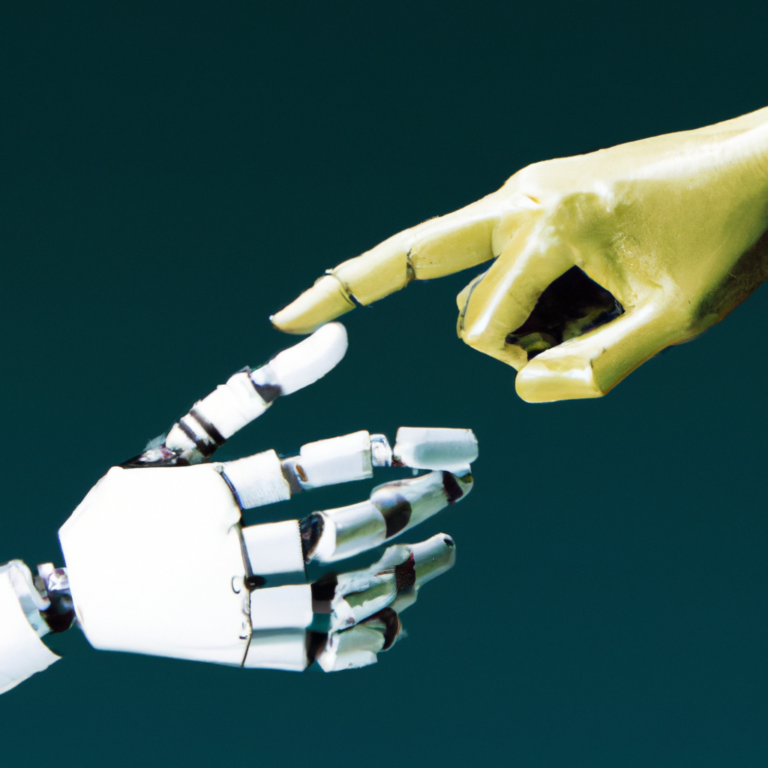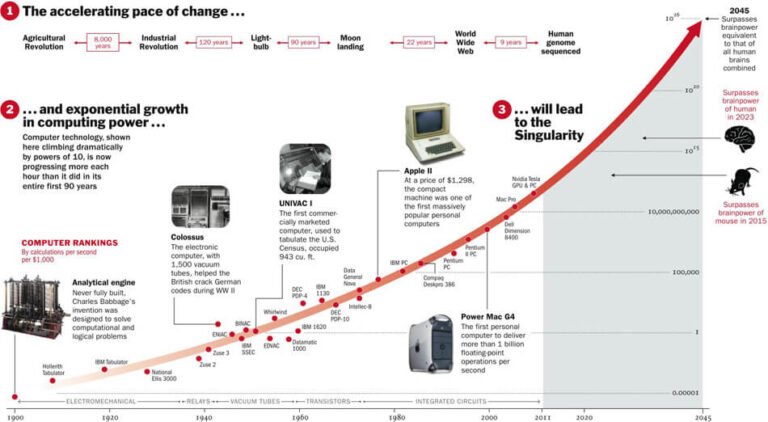AI For Social Good: How AI Can Help Us Solve Our Biggest Problems
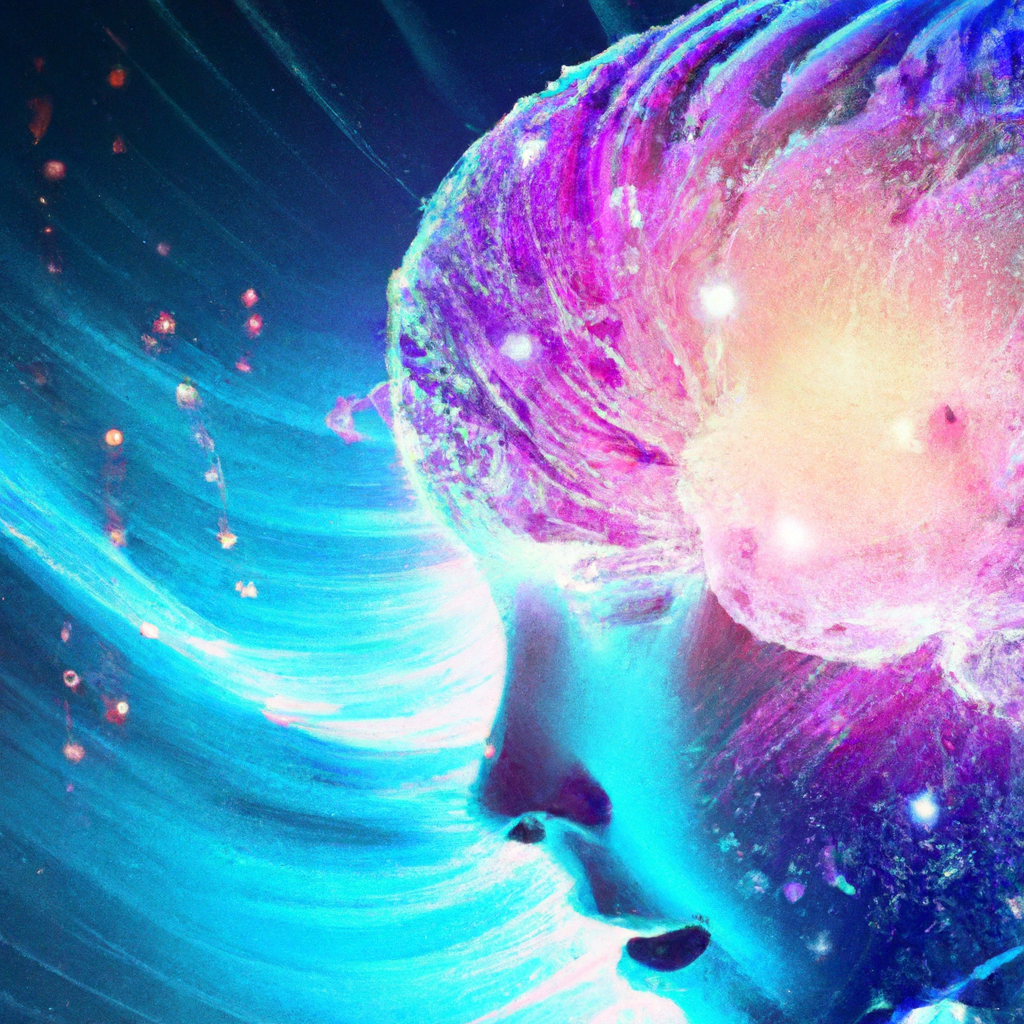
Imagine a world where artificial intelligence (AI) is not just a buzzword, but a powerful tool that can be harnessed to address some of humanity’s most pressing challenges. From reducing poverty to combating climate change, AI has the potential to revolutionize the way we tackle our biggest problems. In this article, we will explore the ways in which AI is being leveraged for social good, and how it can pave the way for a brighter and more sustainable future. So buckle up and get ready to discover how AI can be a game-changer in solving our world’s most complex issues.
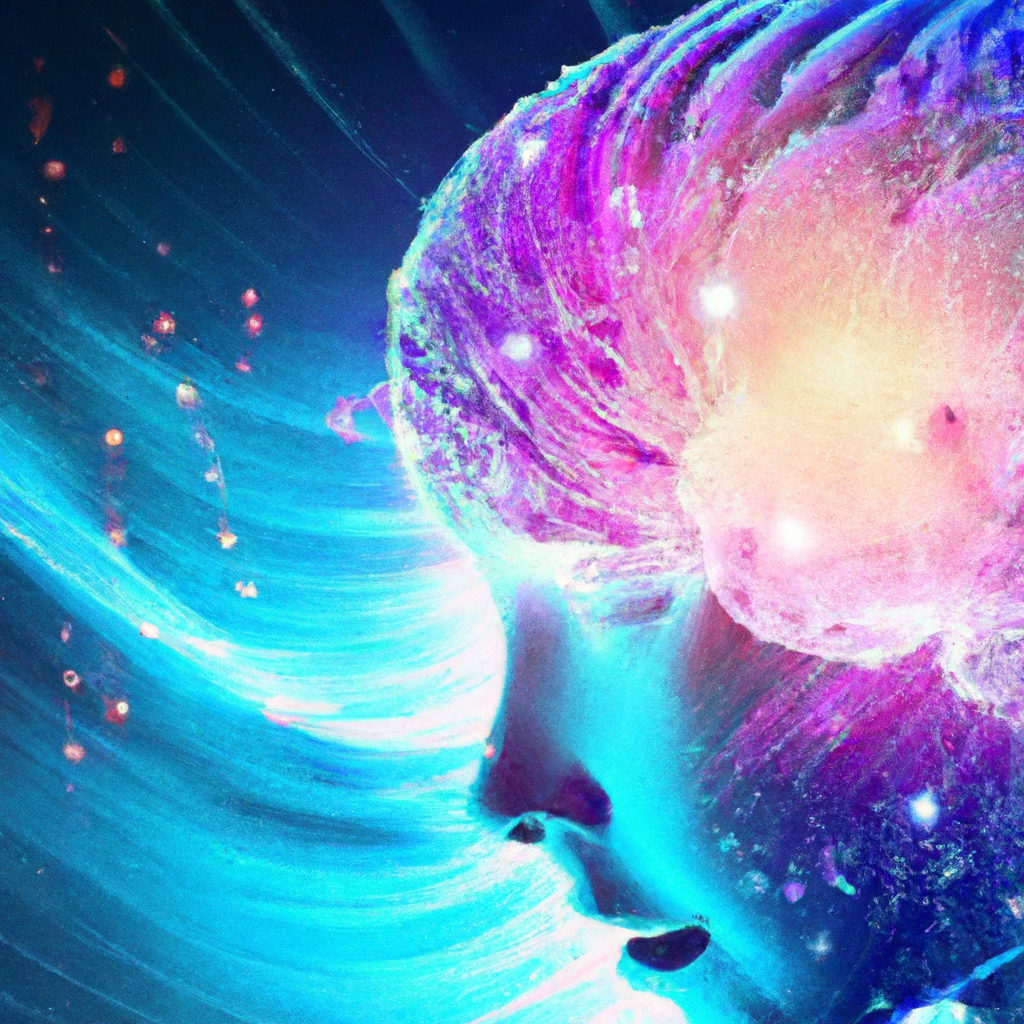
AI for Social Good: How AI Can Help Us Solve Our Biggest Problems
Artificial Intelligence (AI) has emerged as a powerful tool that has the potential to address some of the world’s most pressing challenges. With its ability to analyze vast amounts of data and learn from patterns, AI is revolutionizing various industries, including healthcare, poverty eradication, safety and security, environmental protection, education, transportation, and more. In this article, we will explore how AI can be harnessed to improve these key areas, creating a better and more inclusive world for all.
Improving Healthcare
Enhancing Diagnostics
One significant application of AI in healthcare is enhancing diagnostics, particularly in medical imaging. With AI algorithms, healthcare professionals can analyze X-rays, MRIs, and other imaging scans more accurately and efficiently. AI can detect subtle patterns and anomalies that may be missed by human eye, enabling early identification of diseases and better treatment outcomes for patients.
Personalized Treatment
Every individual is unique, and therefore, their medical treatment should be personalized to cater to their specific needs. AI can help in this area by utilizing vast datasets to identify patterns and predict treatment responses for individuals with certain characteristics. This allows healthcare providers to develop customized treatment plans, ultimately improving patient outcomes and reducing healthcare costs.
Drug Discovery and Development
The process of drug discovery and development is time-consuming, labor-intensive, and expensive. AI can significantly speed up this process by analyzing vast amounts of data to predict the effectiveness and safety of potential drugs. By using AI algorithms, researchers can identify potential drug targets, optimize drug candidates, and accelerate the drug development timeline, bringing life-saving medications to patients more quickly.
Optimizing Healthcare Operations
AI can also play a crucial role in streamlining healthcare operations. By analyzing vast amounts of healthcare data, AI algorithms can identify patterns and trends, allowing healthcare organizations to allocate resources more efficiently, optimize patient flow, and reduce waiting times. This ensures that patients receive timely and adequate care, improving the overall healthcare experience.
Addressing Poverty and Hunger
Efficient Resource Allocation
Poverty and hunger remain persistent global challenges. AI can help address these issues by optimizing resource allocation. With AI algorithms, organizations and governments can accurately analyze and predict trends and demographics, enabling better distribution of resources to areas and communities that need them the most. This ensures that resources such as food, water, and medical supplies are distributed efficiently, ultimately reducing poverty and hunger levels.
Improving Agriculture
AI has immense potential to transform the agricultural sector by increasing productivity and improving crop yield. AI algorithms can monitor and analyze various factors such as soil quality, weather patterns, water availability, and pest infestations to provide real-time recommendations to farmers. By optimizing irrigation, crop management, and pest control measures, AI can help farmers increase their yields, reduce costs, and ensure food security for growing populations.
Enhancing Access to Education
Education is a fundamental right, but many individuals still face barriers in accessing quality education. AI can help bridge this gap by providing personalized and adaptive learning platforms to students. By analyzing individual learning patterns and preferences, AI algorithms can tailor educational content to meet the needs of each student. This personalized approach ensures that students receive the knowledge and skills they need to succeed, regardless of their background or learning pace.
Combatting Unemployment
Unemployment rates remain a significant challenge in many parts of the world. AI, however, can help reverse this trend by creating new job opportunities and facilitating workforce upskilling. Through AI-powered platforms, individuals can access training and resources to develop relevant skills in emerging fields such as data science, cybersecurity, and AI itself. AI can also assist in job matching, connecting individuals with suitable employment opportunities, ultimately reducing unemployment rates.
Ensuring Safety and Security
Fraud Detection and Prevention
Fraud is a pervasive problem that causes significant financial losses and undermines trust in various sectors. AI can be instrumental in fraud detection and prevention by analyzing vast amounts of data to identify patterns and anomalies indicative of fraudulent activities. Machine learning algorithms can continuously learn and adapt to new fraud patterns, allowing organizations to stay one step ahead and protect themselves against financial losses.
Cybersecurity
In an increasingly digital world, cybersecurity has become a critical concern. AI can enhance cybersecurity measures by analyzing network traffic, identifying potential threats, and swiftly responding to them. Machine learning algorithms can detect anomalies, predict emerging threats, and fortify digital defenses, making it harder for cybercriminals to exploit vulnerabilities and ensuring the privacy and security of individuals and businesses.
Disaster Management
Natural disasters can cause immense devastation and loss of life. AI can aid in disaster management by monitoring and predicting these events. By analyzing weather patterns, seismic activity, and other relevant data, AI algorithms can provide early warnings, allowing authorities to evacuate populations and allocate resources effectively. Additionally, AI can assist in post-disaster recovery efforts by analyzing satellite imagery for damage assessment and coordinating relief operations.
Crime Prevention
AI can also play a significant role in crime prevention by analyzing large volumes of data to identify patterns and predict criminal activity. Law enforcement agencies can leverage AI-powered technologies to detect and prevent crimes more efficiently. Facial recognition algorithms can help identify potential suspects, while predictive policing algorithms can analyze historical crime data to allocate resources strategically and prevent crime before it occurs.
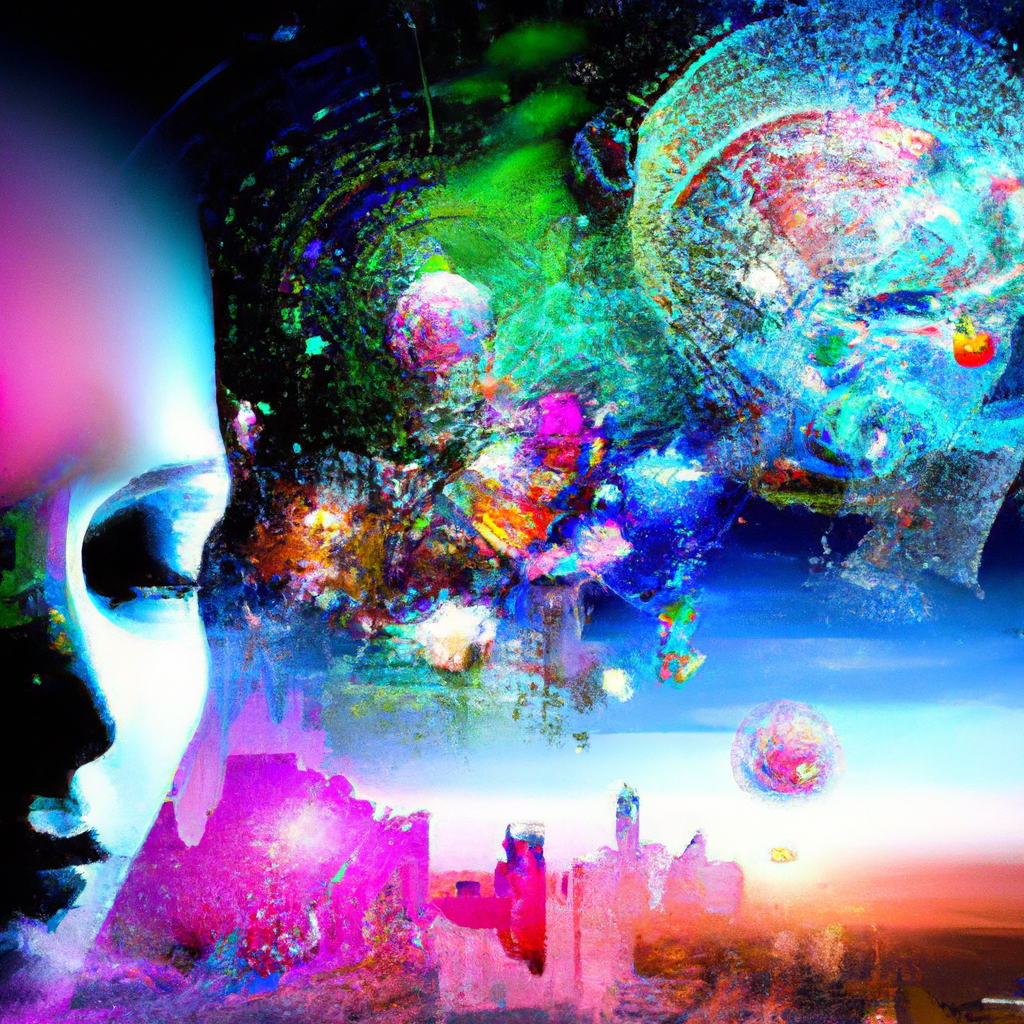
Protecting the Environment
Monitoring and Predicting Natural Disasters
The impact of natural disasters on the environment and human lives can be devastating. AI can be employed to monitor and predict these events more accurately. By analyzing vast amounts of environmental data, such as climate patterns, ocean currents, and seismic activity, AI algorithms can generate early warnings for hurricanes, tsunamis, and other natural disasters. This allows authorities to take proactive measures, minimize damage, and save lives.
Conservation and Wildlife Preservation
Preserving our planet’s biodiversity and protecting endangered species is crucial for a sustainable future. AI can assist in these efforts by monitoring and analyzing wildlife habitats, tracking animal populations, and detecting illegal activities such as poaching. By utilizing image recognition and machine learning algorithms, AI can contribute to the conservation of wildlife, ensuring the coexistence of humans and nature.
Reducing Carbon Footprint
Addressing climate change requires collective efforts to reduce carbon emissions. AI can help by optimizing energy usage and identifying areas for efficiency improvements. By analyzing energy consumption patterns and environmental data, AI algorithms can provide recommendations for minimizing carbon footprint in various sectors such as transportation, manufacturing, and buildings. This can contribute to the transition towards a more sustainable and greener future.
Smart Energy Systems
AI can also enable the development of smart energy systems that maximize renewable energy utilization and grid efficiency. By analyzing energy production and consumption data, AI algorithms can optimize energy distribution and storage. This can facilitate the integration of renewable energy sources, such as solar and wind power, into the existing energy infrastructure, reducing dependence on fossil fuels and promoting sustainable energy generation.
Promoting Equality and Inclusion
Fighting Discrimination
Discrimination based on race, gender, or other factors remains a significant challenge in societies worldwide. AI can help combat discrimination by eliminating biases in decision-making processes. By using comprehensive datasets and removing identifying information, AI algorithms can ensure fair and unbiased outcomes in areas such as hiring, loan approvals, and criminal justice. This promotes equality and creates a more just society for all.
Advancing Accessibility
AI can contribute to advancing accessibility and inclusivity for individuals with disabilities. By using computer vision and natural language processing, AI-powered assistive technologies can enable individuals with visual or hearing impairments to interact with their surroundings independently. Speech recognition and synthesis algorithms can facilitate communication, while computer vision can aid in object recognition and navigation, improving the quality of life for those with disabilities.
Supporting Social Services
AI can enhance the delivery of social services by streamlining processes and improving access to resources. By utilizing chatbots and virtual assistants, organizations can provide round-the-clock support and guidance to individuals seeking social services. AI algorithms can also analyze individual needs and recommend appropriate social programs and services, ensuring that those in need receive timely and tailored assistance.
Improving Governance
Transparent and effective governance plays a crucial role in socioeconomic development. AI can help improve governance by analyzing vast amounts of data to identify trends, patterns, and potential areas for improvement. By utilizing predictive analytics, AI algorithms can assist policymakers in making informed decisions and optimizing resource allocation, ultimately fostering better governance and contributing to the overall well-being of societies.
Enhancing Education
Personalized Learning
One of the challenges in education is catering to the diverse needs and learning styles of students. AI can address this by providing personalized learning experiences. By analyzing individual student data, AI algorithms can identify strengths, weaknesses, and preferred learning styles, tailoring educational content accordingly. This personalized approach ensures that students receive the support and guidance they need, facilitating their academic success.
Adaptive Assessment
Traditional assessment methods often fail to capture the full spectrum of a student’s knowledge and abilities. AI can revolutionize assessment by providing adaptive and formative assessments. By dynamically adjusting the difficulty level of questions based on previous responses, AI algorithms can provide more accurate assessments of students’ understanding and progress. This enables educators to identify areas of improvement and provide targeted guidance to students.
Provide Accessibility
AI can also enhance accessibility in education for individuals with disabilities. By leveraging speech recognition, natural language processing, and visual recognition technologies, AI-powered platforms can transcribe lectures, generate captioning, and provide real-time translations to accommodate students with hearing or visual impairments. Furthermore, AI algorithms can assist in creating accessible learning materials, ensuring that educational resources are inclusive and equitable for all.
Teacher Support
AI can provide valuable support to educators, enabling them to focus on facilitating student learning. By automating administrative tasks such as grading and lesson planning, AI can free up teachers’ time, allowing them to dedicate more energy to instruction and personalized student support. Additionally, AI-powered platforms can offer teachers data-driven insights and recommendations, enabling them to make more effective instructional decisions and support student progress.
Revolutionizing Transportation
Autonomous Vehicles
Autonomous vehicles powered by AI technology have the potential to revolutionize transportation systems. Self-driving cars can reduce human error, improve road safety, and increase fuel efficiency. AI algorithms can analyze real-time traffic data and make split-second decisions, optimizing vehicle routes and reducing congestion. Autonomous vehicles can also enhance accessibility by providing mobility solutions for individuals who are unable to drive due to age or disabilities.
Traffic Management
AI can play a pivotal role in managing traffic flow and reducing congestion in urban areas. By analyzing data from various sources, such as sensors, GPS, and traffic cameras, AI algorithms can predict traffic patterns, identify bottlenecks, and optimize signal timings. This ensures smoother traffic flow, shorter travel times, and reduced carbon emissions, contributing to more sustainable and efficient transportation networks.
Improved Public Transit
Public transit systems are vital for ensuring mobility and reducing congestion in urban areas. AI can help improve public transit by optimizing routing, schedules, and fleet management. By analyzing passenger data, traffic conditions, and historical patterns, AI algorithms can provide real-time recommendations for public transit operators, enabling them to enhance service quality, reduce wait times, and increase ridership.
Smart Infrastructure
AI can facilitate the development of smart infrastructure that enhances transportation efficiency and safety. By collecting and analyzing data from various sensors, AI algorithms can monitor the condition of roads, bridges, and other transportation infrastructure in real-time. This allows for proactive maintenance, preventing costly infrastructure failures and ensuring the safety of commuters. Additionally, smart infrastructure can support the integration of electric vehicles and other sustainable transportation solutions, further reducing carbon emissions.
Empowering Individuals and Communities
Digital Assistants
Digital assistants powered by AI are becoming increasingly prevalent, empowering individuals to easily access information, perform tasks, and control their smart devices. These assistants, such as Siri and Alexa, can understand natural language queries, provide personalized recommendations, and assist with various daily activities. By enabling seamless interaction with technology, AI-powered digital assistants enhance convenience, productivity, and accessibility for individuals of all ages and abilities.
Language Translation
Language barriers can limit communication and access to information for individuals from different linguistic backgrounds. AI can break down these barriers by providing accurate and real-time language translation services. AI-powered translation algorithms can analyze speech and text, accurately translating between different languages. Whether used in business interactions, travel, or connecting with individuals from different countries, AI language translation tools facilitate cross-cultural communication and foster global understanding.
Access to Information
Access to information is crucial for socioeconomic empowerment. AI can help bridge information gaps by providing personalized recommendations and curated content based on individual preferences and interests. By analyzing user behavior and data, AI algorithms can suggest relevant articles, news, and resources, empowering individuals with knowledge and promoting lifelong learning.
Financial Inclusion
AI-powered technologies are opening new avenues for financial inclusion. By analyzing alternative data sources and utilizing machine learning algorithms, AI can assess creditworthiness of individuals who lack a formal credit history. This enables financial institutions to extend loans and financial services to underserved populations, promoting economic opportunities, and reducing poverty. Additionally, AI-powered chatbots can provide financial guidance and support, making financial services more accessible and user-friendly.
Improving Mental Health
Detection and Diagnosis
Mental health disorders impact millions of individuals globally, yet diagnosis and treatment can be challenging. AI can assist in the detection and diagnosis of mental health conditions by analyzing various data sources such as social media, speech patterns, and physiological indicators. By identifying patterns and markers indicative of mental health disorders, AI algorithms can provide early intervention and facilitate timely access to mental health support.
Personalized Treatment
The field of mental health benefits greatly from personalized treatment approaches. AI can contribute to this by analyzing vast amounts of patient data and identifying treatment strategies that are most effective for individuals with specific mental health conditions. By considering factors such as genetic markers, individual history, and treatment response patterns, AI algorithms can help healthcare providers develop personalized treatment plans, improving patient outcomes and overall mental well-being.
Mental Health Support Systems
AI can support individuals with mental health concerns by providing accessible and timely support systems. AI-powered chatbots and virtual mental health assistants can engage with users in conversational interactions, offer guidance and resources, and provide emotional support. These tools can complement traditional therapy and counseling, making mental health services more widely available and reducing the stigma surrounding seeking help.
Reducing Stigma
Addressing the stigma associated with mental health is a critical aspect of promoting mental well-being. AI can assist in reducing stigma by analyzing social media data and identifying patterns of negative language or harmful discussions related to mental health. This information can be used to raise awareness and guide targeted interventions to challenge misconceptions and promote understanding, fostering a more inclusive and supportive society.
Promoting Ethical AI
Transparency and Accountability
To ensure the responsible and ethical use of AI, transparency and accountability are crucial. AI algorithms should be developed and deployed in a transparent manner, with clear explanations of their actions and decision-making processes. This transparency ensures that individuals understand how AI systems operate and can hold them accountable for their outcomes. Organizations and developers should adopt ethical guidelines and practices that prioritize transparency, promoting trust and fairness.
Fairness and Bias Mitigation
AI algorithms are only as unbiased as the data they are trained on. Machine learning models can inadvertently perpetuate biases present in the training data, leading to unfair outcomes. Ensuring fairness in AI requires ongoing efforts to identify and mitigate biases. By implementing bias detection mechanisms and fairness algorithms, developers can minimize the impact of bias and promote equitable and just outcomes in AI applications.
Data Privacy
Data privacy is a crucial consideration in the age of AI. As AI systems rely on vast amounts of data, protecting the privacy and security of individuals’ personal information is paramount. Organizations must adhere to strict data protection practices, including anonymization, encryption, and secure storage. Additionally, clear consent frameworks should be established to ensure individuals have control over how their data is used and shared, fostering trust in AI technologies.
Ensuring AI’s Social Impact
AI technologies should be developed and deployed with a focus on creating positive social impact. Organizations should prioritize the beneficial application of AI that aligns with societal values and contributes to the greater good. This includes efforts to address ethical considerations such as job displacement, economic inequality, and human rights. By actively considering the social implications of AI, we can harness its potential for positive change and ensure a better future for all.
In conclusion, AI has the potential to address some of the world’s most pressing challenges across various sectors. From improving healthcare and addressing poverty to ensuring safety and security, protecting the environment, promoting equality, and revolutionizing education and transportation, AI offers transformative solutions. However, it is essential to approach AI development and deployment with ethical considerations and a focus on social good. By harnessing the power of AI responsibly, we can build a better, more inclusive world that benefits all of humanity.
Want to write articles like us? Get your copy of AI WiseMind here!

